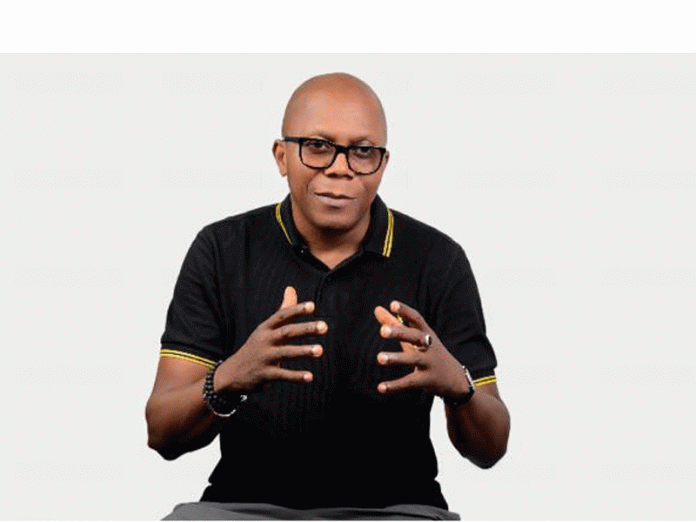
Managing Director/CEO of PrimePort Logistics, a cargo service company, Mr. Femi Adewunmi in this interview says the coronavirus pandemic has drastically changed the sub-sector; saying that cargo freighting will move online post COVID-19 and may lead to the phasing out of clearing agents.
How has the coronavirus pandemic affected cargo freighting in Nigeria?
This COVID-19 situation has really impacted on every aspect of our lives, every aspect of business; it has affected the world in an unexpected way. Now, two ways that I look at how it has affected the cargo business – one, I will say there is an international angle and two, there is a local angle. So, even if there is progress in Nigeria, the impact internationally will still affect the local and verse versa. This means we are so interdependent now and Nigeria is an importing country, we don’t do a lot of manufacturing, we don’t do a lot of local production of things, we are always importing things. We are heavily dependent on importation. So, as the international market is slowing, obviously there will be a slowdown in Nigeria. And also the impact on the oil industry is the one that is so painful. Because at the moment, Nigeria is looking at diversification but at this minute we are still heavily dependent on oil.
The reality is that we have to still continue to depend on oil in the short term. So, when people are not consuming or moving around, then they are not consuming fuel, they are not using any energy, we are all just sitting at home. So it has been devastating for the oil industry and that obviously impacts on importation, especially in the South-south part of Nigeria where heavy oil and gas activities take place. And not only that; the additional dimension to it, which made it more impactful was that people could not even move around. So you have expatriates that were here before but had all gone back and we don’t know when they are ever going to come back. Because money follows people, so if people are no coming, money is not going to come. So even if everything is fine and there is still not much travelling, your economy will still not pick up because money follows people. So it has been devastating, and it has reduced the level of importation. If there is less activity, there will be less importation; more activity more importation.
Let’s look at post-COVID, what are you looking at in terms of recovery?
A lot of businesses are going to be moving online. So if we look at the cargo industry, we can put them into different categories. We have the people that provide infrastructure like the handling companies. The container terminal people, then you also have the operators, the clearing agents, the agencies that have a stake at the airport, and then you have the end users, the importers themselves, then you have the delivery aspect. So post-COVID, a lot of the operating processes will go online. So the future of the clearing agents is going to be completely changed and it is going to be also challenging because everything is now going to move online. Sooner or later you are going to be doing all your clearing online, so there will be no need for any agent.
It will become possible that every end user can go online, log in or go into an app and process their importation. So you will not need agents anymore. And if that happens you lose volumes and jobs. It is already happening. Take for instance; CAC (Corporate Affairs Commission) is all online now. Two, three years ago you needed a lawyer that must register with CAC. You can’t just go to any lawyer; they have to be registered with them. Today you can go online, search for your name and do everything yourself. Everything is going to end up there. So the future of the clearing agent, the operators are going to be completely different. So, we need to start looking at how we will start building capacity now. So you start training your people into using technology. How can you start deploying technology now so you will not be left behind? How will our job be different? Is it going to be more of financing, how you are going to be paying for those things? What role are we going to be playing in all these things? Is there going to be a portal where all the agents will be that will look like a market place?
There will be integrated systems, so as the shipment is leaving UK, for example, it is already integrated into the Nigerian system. So there is already visibility. The way the terminal people make money before and start-raising invoice is not going to be happening anymore. There is going to be integration, so as you are paying for your goods, you can pay for the terminal as well. Everything is all integrated, it becomes like an ARP (Address Resolution Protocol) system. So life is going to change, technology is going to be the next order of the day. So smart companies and smart people will start looking three to five years ahead.
The other thing COVID-19 is going to teach us is that you need to have structure. When things become difficult, it is the people that have structure that will survive. So all the people that don’t have structure, it will be more difficult, and those are the people that you see that are feeling the pain the most now. And what COVID-19 is saying now, post-COVID is that you need to start building structure, you need to have processes, and you need to have a structure in your business that can withstand some of these external forces. You need to start looking long-term rather than short-term. Some people had looked at things long-term in the past, so with this COVID-19 thing it will just be readjustment you need to do.
What is your evaluation of the facilities that enhance or facilitate cargo freighting at the airports and what facilities do you expect should be there to make it easier for you to move cargo?
I am going to be very honest, there is nothing wrong per say with the infrastructure we currently have at the airports. Of course, you are right that it can be optimised. Of course, you are right that some of the equipment and some of the infrastructure are not for these things. You are very right to say that the capacity that we are meant to be doing when it was planned, those infrastructure are not what is being used for. We have more cargo now than we ever used to have. So there are a lot of infrastructural gaps, equipment gaps at the airport. But for me that is further down the line of problems.
For me it is about process. For me it is about people, for me it is about vested interest, for me it is about best practice, for me it is about how we operate. Those are far more problems than the structural or equipment things of the airport. And people tend to point at the structural things because they don’t want to address the human factor challenge. The real problem is the human factor, they are the processes, they are the regulations, they are the policies; then the way they work, that is the real problem.
That is the problem with volume, which is the problem with revenue but our people tend to point fingers at infrastructure. If you get those things right at least you will be optimising. We will not be at so much pain in the airport as we are today.
Now that you mentioned vested interest and process, to what extent do they constitute a hindrance?
It does a lot, because you know airline is competing with handling company. Airline’s agenda is different from handling company, handling company is different from the Federal airports Authority of Nigeria (FAAN). FAAN will set its own rules and the other one will set its own rules, everybody has different kind of customers. Handling company is focusing on airline because they see them as their customers. Customs is seeing handling company keeping their cargo for them. So you have all these competing and contradictory vested interests, looking at different things, different KPIs (key performance indicators).
Then you have the customer and nobody is focusing on them. And everybody needs to be focusing on them. So the processes are all geared towards each other’s interest not the customer’s interest. So that is why you find that things are slow, things are missing, things are delayed, that is why you find corruption and that is why you find all sorts of things. This is because everybody wants to own each part to be able to leverage to have vested interests.
We have the equipment, what we have for now is okay. We can’t be comparing ourselves with the developed countries. So we need to be realistic. When people start expecting foreign standard, then I know straight away that they are looking for excuse to blame something else – their own failures. Most of the time it is n internal problem rather than external.

Do you think that FAAN, Customs and other government agencies over charge their customers?
Look, there is a blame culture in this industry. You go to this person they will say it is Customs. You go to Customs; they will say it is the other person. Everybody is blaming each other. The bottom line is that it is our processes. There is no problem with charges if they are transparent. When it comes to pricing or charges, there is more than one problem. One, I don’t know what I need to pay so I cannot plan. Two, it is too much for me. And three, terms at which I am to pay for the charges. Even if we can’t address charges, lets address transparency of the charges so that I can plan. If I know I am going to pay X amount but I already know it is visible, I can get it ahead of time. My next complain might be the charges but at least one problem is solved. And I will not have as much issue as when those three are the three forces against me. So I don’t see any problem with Customs; things are very standard if you comply with the law. Then Customs will not disturb anybody.
People have taken bad practice as the norm, so when Customs are trying to do their job, people will be saying they are being difficult, that they are being over charged. Customs too is growing like the way everybody else is growing in the world. They are becoming better at their work; they are becoming more compliant, that is the way the world is going. So, when Customs is now putting its foot down you have to understand because they now have a better management, they now have anti-corruption mechanism, they now have ease of doing business, they are now doing their things better, you will now be complaining.
For me I have an issue with people that complain. Do your own part, let’s all do our own part and then let’s see whether it works or not. From my own experience, we have been in this business for some time now; our success is based on us doing our own part. So I don’t see those problems that all these people are talking about.
THISDAY






